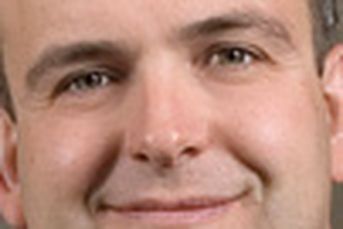Stifel CEO: Breakaway brokers are weaker producers, but more profitable
Regional brokerage firms and some independent investment advisers have been making hay hiring hundreds of discontented wirehouse brokers.
Regional brokerage firms and some independent investment advisers have been making hay hiring hundreds of discontented wirehouse brokers.
But Stifel Financial Corp. chief executive Ron Kruszewski, one of the beneficiaries of the movement, acknowledged this week what the big brokerage firms have long contended — that many of the brokers on the market are relatively weak producers.
“To a certain extent it’s true,” he said yesterday at a conference in New York sponsored by Bank of America Corp. and its Merrill Lynch & Co. Inc. unit.
Mr. Kruszewski, whose firm last month acquired 322 brokers in 56 mostly Midwestern branches from UBS Financial Services, said that the new brokers who joined in the deal generally produced below-average revenue relative to all UBS financial advisers. But he added that he’s satisfied with the deal because higher production revenue doesn’t always translate into higher profit.
“I don’t look at productivity per FA [financial adviser], I look at profit,” he said. “An FA doing $350,000 in Missouri with higher client retention and less risk is more profitable” than a broker in a high-cost area such as New York City.
Stifel has added 583 net new brokers this year, bringing its total number of financial advisers to 1,900 in 273 offices, including about 185 independent contractors at its Century Securities Associates unit. Five years ago Stifel had 621 financial advisers.
Mr. Kruszewski also said that Stifel expects to continue to grow from “dislocations” related to the mergers of larger competitors. That contrasts with the views of John Taft, the head of Royal Bank of Canada’s RBC Wealth Management unit, a major competitor of Stifel, who recently said that the boom in breakaway brokers is ending.
In the past year, Merrill Lynch was acquired by Bank of America, Citigroup Inc. sold a majority interest in its Smith Barney affiliate to Morgan Stanley, and Wachovia Securities and its parent bank Wachovia Corp. were absorbed by Wells Fargo .
Mr. Kruszewski and Mr. Taft also have differing opinions about a key regulatory initiative affecting the retail brokerage industry.
The possibility that Congress and the Securities and Exchange Commission will impose a fiduciary standard of care on retail brokers who give advice is “what keeps me up at night,” Mr. Kruszewski said at the conference, calling it an example of financial services reform that “goes too far.”
Imposing a fast-and-hard fiduciary standard, as interpreted under the Investment Advisers Act of 1940, would “eviscerate” the brokerage model, he said, and could even preclude a broker’s ability to sell something as simple as a municipal bond.
He also called it “a solution in search of a problem,” since the major problems of the financial industry that emerged in 2008 weren’t caused by misunderstandings between investors and their brokers, but by loose credit standards and the creation of instruments such as collateralized-mortgage obligations that had little to do with retail brokerage.
Mr. Kruszewski drew criticism from Mr. Taft when he made similar remarks about the fiduciary standard last month at the annual meeting of the Securities Industry and Financial Markets Association. The brokerage industry trade group has endorsed a fiduciary standard for brokers who give advice, if the standard is adjusted to allow brokerage clients to opt out of requiring their brokers to make full disclosure of potential conflicts prior to every sale, and to permit brokerage firms to continue to conduct proprietary trading and other activities that could create conflicts with clients.
Mr. Taft said the group is “taking the high road” in endorsing the standard.
Mr. Kruszewski, to be sure, said he is not so much against a modified fiduciary standard as concerned that it is drawing attention away from more vital issues. He also told investors at the Merrill Lynch conference that he believes key legislators and regulators understand the distinctions between the suitability standard to which brokers are held and the fiduciary standard that applies to investment advisers, and will act accordingly.
Stifel, which is gearing up through Century to offer custody services to registered investment advisers, has booked 42% of its operating profit in this year’s first three quarters from its global wealth management businesses, down from 57% in 2008 as it realized gains from previous build-ups in its trading and investment banking activities. Revenue from global wealth management fell to 53% from 56% in the comparable nine-month period of 2008.
Growing through retail brokerage acquisitions, meanwhile, has added to Stifel’s cost structure. The company booked expenses of $2.5 million, or 4 cents a share, in the third quarter to convert the UBS brokers and branches to its system. Stifel, which in recent years also bought retail brokerage firms Butler Wick and Ryan Beck, also has reimbursed $7.5 million of automated-customer-account transfer fees to clients who were charged by their previous firms for following their brokers to Stifel. In 2008, such ACAT fees totaled $2.4 million.
Learn more about reprints and licensing for this article.




